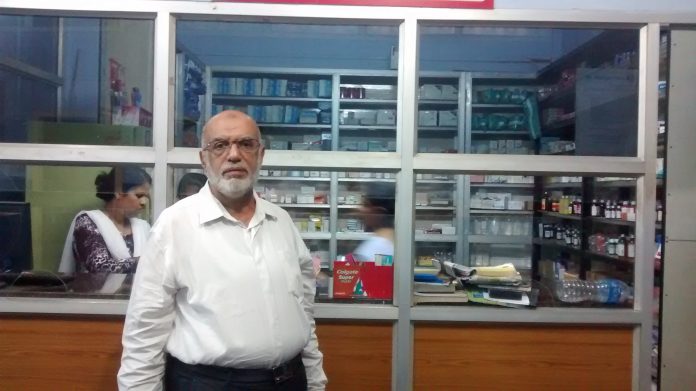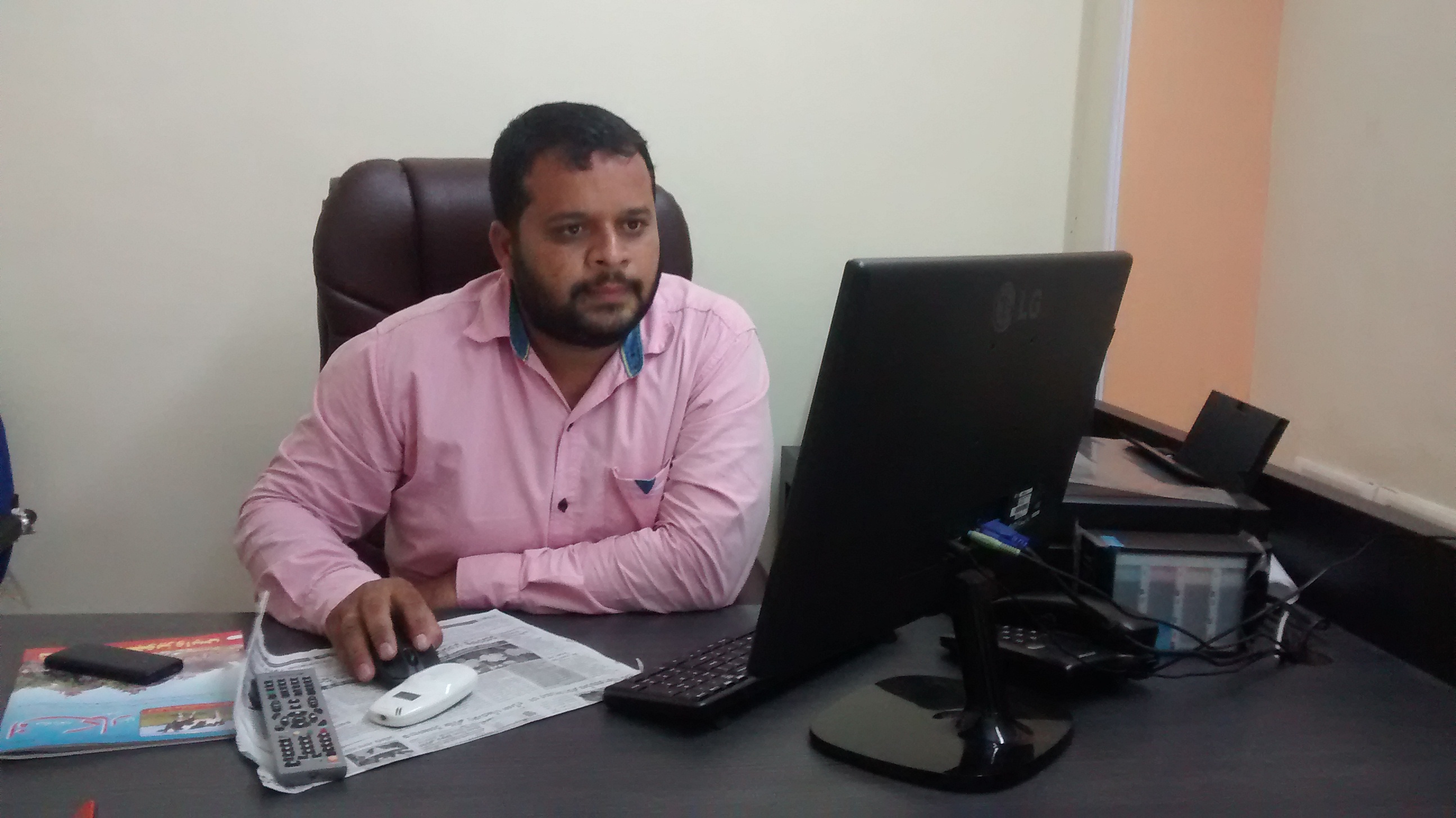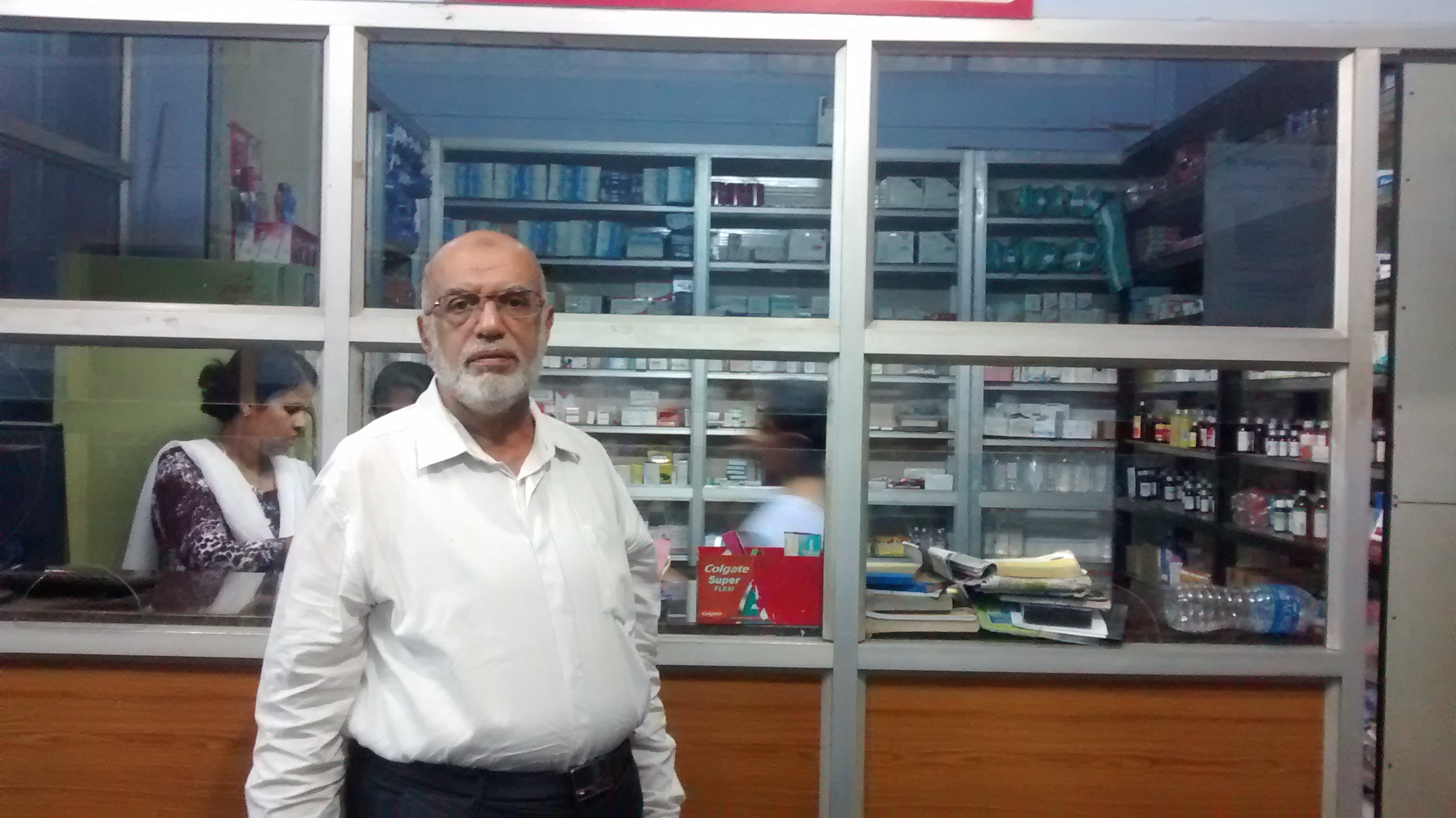
How does an entire city become a ‘terror hub’? And what can it do to challenge this notion? Bhatkalis have for long taken pride in their culture and history but the recent allegations of terrorism have damaged their reputation and the effects are visible in the gaps created in the city’s education and health sectors. In the fifth of the nine-part series, Amit Kumar looks at how the city looks to now facing a shortage of doctors and teachers due to the dent in its reputation.
Read part one here
Read part two here
Read part three here
Read Part four here
Depending on what your ideological leaning is, you will either see Bhatkal as an extremely laid-back town where little of interest happens, or a city which is continuously conspiring to wage war against India. Mind you, the latter will take a lot of imagination, prejudice against one community and a level of paranoia that might need psychiatric attention. Nevertheless, as even the most basic Google search on Bhatkal will show, the media has built up Bhatkal to be a sort of an antithesis of everything India stands for; and the locals are not happy. “You guys talk like every day five bombs go off in this city and our day starts and ends by talking of Jihad,” says a youngster. “Is this why you are visiting the city too? To show the world how we are terrorists?” he questions and walks away without waiting for an answer.
The residents of Bhatkal, called Bhatkalis, have a rich, famous and a well-known past which goes back to many centuries. Located on the Western Coast of India, Bhatkal enjoyed trade relations with the world, and especially the Arab world, even before the advent of Islam in the region. From the seventh century onwards, the traders from Arabia also brought along the religion of Islam and since then, it remains one of the most defining characteristics of this city and a source of great pride. “We embraced Islam out of our own conviction, and we are proud of that,” says Abul Aleem Qasmi, a man in his 70s and the owner and editor of Naqsh-e-Nawayath, the only newspaper printed in the local language Nawayathi, which is a mix of Persian, Urdu, Marathi and Konkani. He says that trade has been the most important source of income for Bhatkal Muslims for over 1,000 years and even now, Bhatkalis take pride in their ability to do business. “Although we are a small community, we are present across the nation and the world because of our entrepreneurial skills. It comes naturally to us,” he adds.
But a strong and beautiful past can do little to tide over a controversial and unfortunate present. And for Bhatkalis, this has brought along a set of challenges that they never thought they would have to face. Over the past decade, the arrest of Mohammed Ahmed Siddibappa alias Yasin Bhatkal, the alleged mastermind of the Indian Mujahideen, and the search for Reyaz Shabandri alias Reyaz Bhatkal, another alleged IM operative along with a dozen or more arrests in relation to terrorism has meant that the city has become ‘known’ for issues that the residents claim to have little or no control over. And the bad name that the city has earned is now beginning to have an effect on the daily lives of the people.
Failure to attract quality teachers due to ‘bad reputation’
Take the example of higher education. Although Bhatkal is a small town in the Uttar Kannada district, it takes pride in having one of the best systems of education in the whole of Karnataka. A lot of credit for this goes to Anjuman Hami-e-Muslimeen, an organisation set up as early as 1919 with the aim of spreading education among the locals. The trust, simply known as Anjuman in this area, is an association of Bhatkalis from across the world who donate generously to run 22 institutes under Anjuman that caters to everything from primary to postgraduate studies at subsidised costs. In fact, a literacy rate of over 90% for both women and men for Bhatkal city as per Census 2011 is the best example of their contributions.

The role of Anjuman in the life of Bhatkalis, whether Hindus or Muslims, has been so strong that it is rare to find a person who has lived in Bhatkal and not attended Anjuman at some point in his/her life. IS Siddique, the current General Secretary of Anjuman, says that the institute, which started with just a primary school in 1919, and its achievements are all down to the philanthropic nature of Bhatkalis.
“Today, we have an engineering college, polytechnic institutes, degree colleges for both men and women and a host of other institutes because Bhatkalis who have prospered in their ventures have made it a point to give back some of their money to set up these institutes. All office bearers of Anjuman work for four years without a salary. This is because all of us have our own source of income and we look at this as an Islamic practice of giving back to our society. We are a minority institute so of course, most of our students are Muslims, but we have never differentiated between Hindus and Muslims. In fact, some of our brightest students are Hindus from Bhatkal and elsewhere. Isn’t that something to be proud of?” he asks.
However, over the past decade or so, there has been a worrying trend that has been observed. The first pinch was felt after the 1993 riots following the demolition of Babri Masjid after which the town faced a six-month curfew. Since then, the town had been presented as some sort of hardline Islamists who couldn’t co-exist with Hindus. However, the calm followed by the riots seemed to have put an end to any such speculations. But over the past decade, the fear has returned.
“Like all colleges, we have Professors, Lecturers and other teaching staff. However, in a lot of our college departments, we are missing senior faculty because we are struggling to find replacements,” says Siddique. He talks of one instance in February this year, when Anjuman called for applications for a teaching staff in its Mechanical Engineering department. The ads were placed in both local and national newspaper but after there was no response, they also set up a walk-in interview. Guess how many people turned up?
“Zero,” says Siddique, with a look of disappointment on his face. The post continues to remain vacant.
“One, and a very straightforward reason for this,” says Siddique, “is that over the past two decades hundreds of engineering colleges have come up in South India and especially Kerala and Karnataka. So, the competition is tough for sure. But we cannot ignore the fact that when people see the name Bhatkal, they feel that it may not be a safe place due to the ‘terror’ tag. Even in terms of students, we have seen a fall in numbers. Earlier, for example, students from Kerala made a huge chunk of our student population but their numbers have come down,” he adds. Like the Mechanical Engineering department, the Computer Science department has been searching for a Head of Department for over a year, and same is the case in its Physics department. “In short, we are learning to do more with less and hoping that things improve,” Siddique says. The main reason why Anjuman has not yet set alarm bells ringing over the lack of faculty is because a lot of ex-students of Anjuman have come back to work as faculty. “About one-third of our faculty consists of students who studied here in the last decade,” Siddique adds. “Without them, I would not know where we would have been,” he says.
The situation is no different in its women’s colleges too. Established in 1995, Anjuman Pre-University college for Women and Anjuman Degree College moved to a bigger, modern building in 2015. However, despite high-quality infrastructure and a student intake of over 500, the college has found it tough to attract women faculty over the past few years. College principal Raeesa Sheikh says that they are currently operating on about 2/3rds capacity in terms of faculty. “We can employ only female faculty. In the past two years, we have done all we can: offer higher salaries, better work profiles, but it has not worked much. Our science courses, especially Zoology and Botany, are in particularly bad shape due to lack of experienced teachers and we have to depend on externals to help us through the year. We are also dependent heavily on our former students coming back to teach here,” she says. When asked about the reason, she says almost dismissively, “You know the reason. When all of the media wants to paint us as a terror hub, what power will a college have?”
Robust health facilities going to waste due to lack of doctors
The philanthropic nature of Bhatkalis did not stop at colleges. Their love to see Bhatkal as a self-sufficient town also resulted in setting up of at least six private hospitals to go along with the two government hospitals in the region. One such hospital set up nearly 30 years ago was the Welfare Hospital. In 2008, Islamic Welfare Society took over the control of the hospital. At that time, the hospital consisted of two general practitioners, one gynaecologist, one orthopaedic, one paediatrician, one radiologist and one anaesthetist. Today, nine years later, it has been left with two GPs and about two dozen paramedics. Abul Ala Barmawar, the hospital administrator, says they have tried everything possible to get more doctors. “We have time and again advertised in national newspapers, even met doctors in Bangalore and Mangalore and invited them to come over, but it has not worked,” he says.

Just before the orthopaedic surgeon left in 2008, he had commissioned some special equipment and the hospital had spent close to Rs 10 lakh on getting the same. Nine years later, the machines lie unused, and patients now have to go to nearby towns like Kumta, Honavar, Kundapur and even Udupi and Mangalore. “The situation is so dire that there is one anaesthetist in the town who works in the government hospital and is available on call for us. If he is busy, you cannot conduct even the smallest operation in this hospital,” says Barmawar. “The only silver lining, if I can call it so, is that the Orthopaedic surgeon was also demanding some more equipment which would have cost Rs 25 lakh. Thank god we did not buy it,” he adds.
Dr Nisar Sada came back to Bhatkal about a decade ago. “I used to live in Mangalore but decided to come back here. Even then, there was a shortage of doctors here so I thought it made sense for me to come back,” he says. In 2012, he established Asiya Hospital. Until two years ago, he had the services of a gynaecologist, but after she left, Sada realised the magnitude of his challenge. “I networked across the nation. I visited doctors in Mangalore, Shimoga, Udupi, even Delhi, Chennai in search of a gynaecologist ready to work in Bhatkal. I cannot begin to explain how much effort I have put in this process: I offered better salary than Mangalore but people just cannot believe that Bhatkal is a normal place,” he says. “Unlike teaching, this profession does not give so much space to learn on the job. You cannot afford to make a single mistake so I also cannot compromise with quality,” he adds.
The whole of Bhatkal today had one gynaecologist who works as a consultant. “For 15,000 or more females, we have one gynaecologist. If you break a bone in Bhatkal, you will have to go to some other place to get it fixed, especially if it needs a scan,” he says. “If you come here, you will know how nice Bhatkalis are. But if you are hell bent on believing what the media has to offer, then what can I say except hope that you get rid of your prejudice?” he adds. “What we need is more attention to issues that every town faces. What we are getting instead is attention for all the wrong reasons,” he laments.
